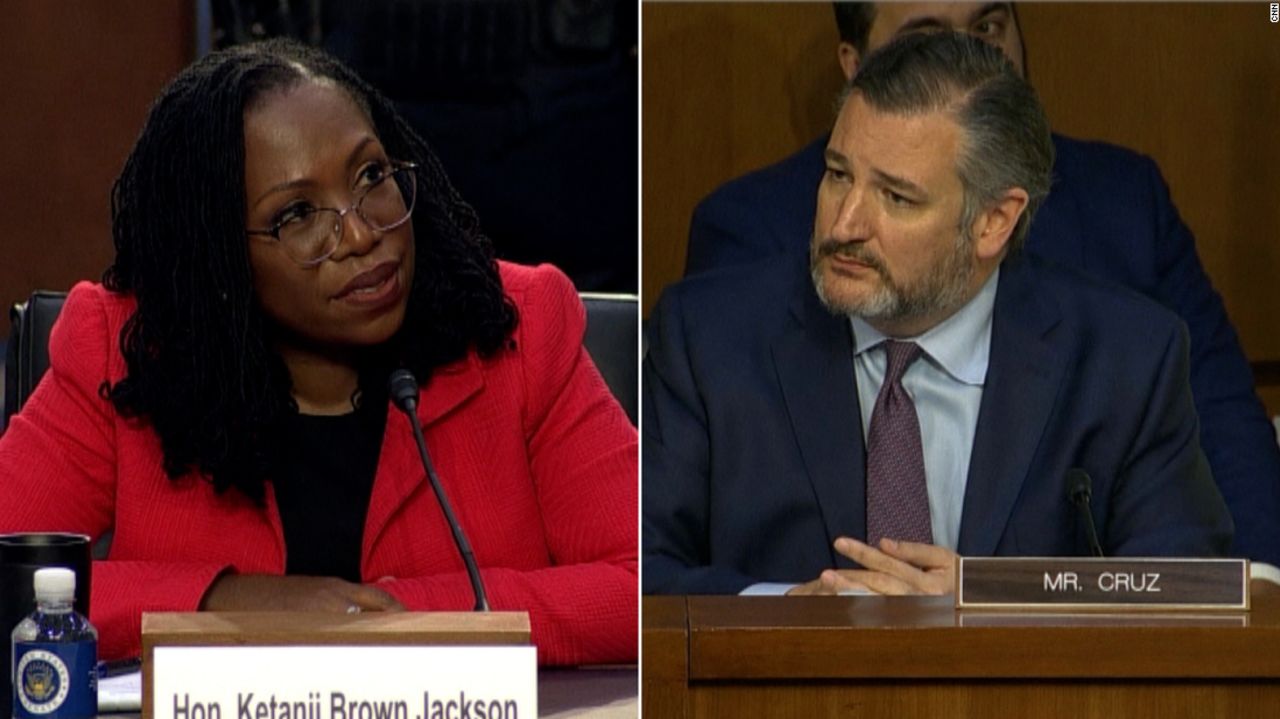Editor’s Note: Jeffrey Toobin is chief legal analyst for CNN and the author of “The Nine” and “The Oath.” The opinions expressed in this commentary are his own. View more opinion on CNN.
Judge Ketanji Brown Jackson is likely to be confirmed as a justice on the US Supreme Court, but her confirmation hearing demonstrates how conservatives are winning the ideological war over the Constitution.
Jackson has preferred to call her approach to interpreting the Constitution a “methodology” rather than a “philosophy,” but the gist of the two terms is similar. Jackson’s description of her approach is consistent with how conservatives have sought to define the judicial role for a generation or two.
She has spoken of the “limited” role of the judiciary and her desire to “stay in (her) lane” as a judge rather than as a legislator. Jackson has said further that she begins her analysis of the Constitution and laws always with the “text.” She has gone out of her way not to embrace a belief in a “living Constitution,” an interpretative method based on the idea that the meaning of the Constitution must be seen in light of changing conditions in society at large.
To people unversed in the history of constitutional debates, these terms may seem uncontroversial, even generic. But they come with a lot of baggage. Conservatives have charged over the years that liberal judges have been “activists” who “legislate from the bench.” The proper role of the judge, according to many conservatives, is to defer to the democratically elected branches of government.
Republican Sen. John Cornyn of Texas made this point when he criticized the Supreme Court’s Obergefell v. Hodges decision, which required all 50 states to allow same-sex marriage. Cornyn pointed out that legislators in some states had voted to allow same-sex marriage, and those in other states had banned such marriages.
According to Cornyn, the whole issue of same-sex marriage should be left to politicians, not judges.
Jackson didn’t take the bait to weigh in on that specific issue, but she did express sympathy for the approach Cornyn advocated. That’s generally what’s meant by a “limited” view of the judicial role and of judges “staying in their lane.”
Of course, that doesn’t mean that Jackson disagrees with the outcome in the Obergefell case. Indeed, it seems extremely unlikely that she does. But Jackson’s statement about the limited role of the judiciary shows how conservatives have won this rhetorical fight.
It’s not clear that Jackson’s embrace of conservative language is anything more than rhetorical. Based on her record and background, it’s likely that she’ll vote like the two other liberals on the court, Sonia Sotomayor and Elena Kagan. Nor will Jackson’s use of this kind of language in her confirmation hearing get her many Republican votes for confirmation. But language matters, and the way we talk about the Constitution often dictates what the Constitution comes to mean.
Even more extraordinary was Jackson’s statement about “originalism.” This approach, most famously embraced by Justices Antonin Scalia and Clarence Thomas, holds that the Constitution’s terms should be interpreted as the words were understood to mean at the time of the ratification – in the 18th century for the text of the Constitution and the 19th century for the Fourteenth Amendment.
Jackson presented herself as an originalist. She said, in response to a question from Republican Sen. Mike Lee of Utah, she believes as a judge, you “are bound by the text and what it meant to those who drafted it.” That’s right out of the originalist playbook.
The problem, though, is that it’s hard to take such an approach literally. At the time of the adoption of the Fourteenth Amendment in 1868, for example, it was clear that segregated public schools were permitted; indeed, they were virtually universal. But since Brown v. Board of Education in 1954, the Supreme Court has said that the Fourteenth Amendment bans segregated public schools. No one seriously questions that decision today, but it’s clearly a non-originalist decision.
Again, even though Jackson clearly embraces Brown, her rhetoric shows how much the originalists have won the rhetorical battle.
It’s highly debatable whether we as a society should be bound not just by words written hundreds of years ago, but by the world views of the people who wrote those words. The world has changed in untold numbers of ways; so, then, should our understanding of the Constitution. That is not the same thing as saying that judges and justices can find anything and everything in their interpretations of the Constitution.
Get our free weekly newsletter
As Jackson said in answering Democratic Sen. Amy Klobuchar’s question, it was impossible to know what the Framers thought about searches of an individual’s cell phone or police using GPS to follow a suspect.
To be sure, Jackson said her analysis would start with the principles established by the Framers, but it’s inevitable and appropriate that we think in a modern way about the words of the Framers.
Still, that kind of talk, even from a nominee of a Democratic President, is nearly off limits. The Constitution will always be a living document, whether we acknowledge it or not, but conservatives have won a major victory in making it difficult to say so.






















